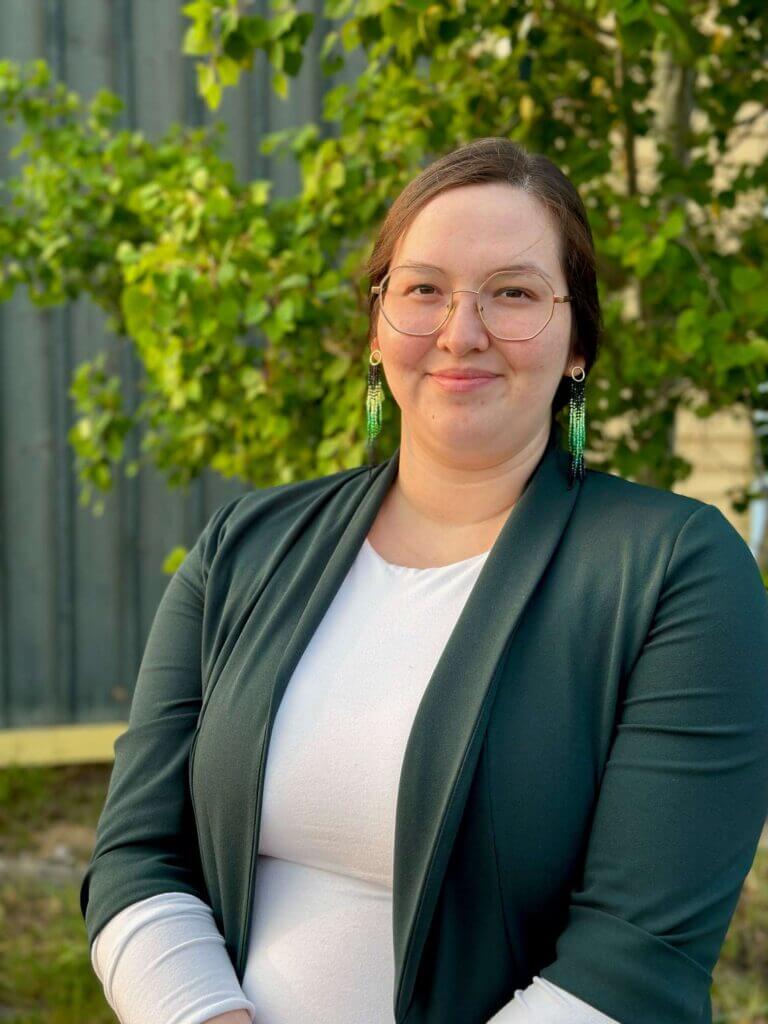Alycia Lameboy-Dixon, Brian Fraser Recent Graduate Award

Justice Projects Officer, Department of Justice and Correctional Services at the Cree Nation Government
Law Clerk, 2019
General Arts and Sciences: Justice Studies, 2018
General Arts and Sciences: English for Academic Purposes, 2016
Alycia Lameboy-Dixon is a Cree woman from Chisasibi in the Eeyou Istchee territory, a remote community of more than 5,000 people. A personal responsibility to give back to her community was instilled in Lameboy-Dixon early on, as culture and family played a significant role in her upbringing. Upon completing her Law Clerk Ontario College Diploma, Lameboy-Dixon began a prestigious role at Gowling WLG law firm in their advisory department, supporting and advising on Indigenous case files. Lameboy-Dixon’s personal experience, combined with her skillset, made her an invaluable asset to her team. Fluent in Cree as a mother tongue, Lameboy-Dixon communicated and understood clients’ needs in a way that others on her team could not. During her time at Gowling WLG, she had a hand in roughly 500 case files.
At Gowling WLG, Lameboy-Dixon worked on the Federal Indian Day School class action lawsuit, working as a Support Clerk on the file, helping individuals with their lawsuit applications and transcribing their stories ensure they were properly compensated according to the experience of each claimant. She helped over 500 claimants receive between $10,000 to $200,000 in settlements. Lameboy-Dixon occasionally travelled with the legal counsel to assist the communities with their applications on-site.
Today, Lameboy-Dixon has returned to her remote community where she works as a Justice Project Officer for the Department of Justice and Correctional Services at the Cree Nation Government, responsible for the general office administration of the justice department, managing criminal and by-law case files for nine communities, programs and services in the Eeyou Istchee. Collaboratively works with the Manager of Justice, Justice staff and the court organizers at le Ministere de la Justice du Quebec (MJQ) to reinforce easy accessibility of justice and judicial services in the northern communities.
Lameboy-Dixon credits much of her success to her college education in Ontario, allowing her to test the waters, try new things and develop a solid foundation for a successful and impactful career in the justice sector. As a native Cree and French speaker Lameboy-Dixon came to college with very limited English language skills. Now trilingual, Lameboy-Dixon can communicate effectively with all members of the justice system to ensure the needs of her community are met, including the over 18,000 people who call the Eeyou Istchee territory home.
Interested in justice and knowing that legal services were limited in her community, Lameboy-Dixon wanted to provide crucial legal support to individuals who may otherwise go without; this pushed her to continue her studies and complete the two-year Law Clerk Ontario College Diploma program.
To date, Lameboy-Dixon works full-time with the Department of Justice and Correctional Services at Cree Nation Government serving nine Cree communities. Her work primarily revolves in administration of justice and community-based programing. Lameboy-Dixon’s work helps ensure the sentencing of Indigenous offenders aligns with their crimes and considers the important role community and culture play in offender rehabilitation and reintegration. Her role as Justice Projects Officer allows her to effectively work with the local justice staff to ensure their community justice programs are implemented.
As Indigenous people are greatly overrepresented among Canada’s in-custody offender population, Lameboy-Dixon’s work helps to lower incarceration rates among Indigenous people while also reducing the rate of reoffence. Outside her role as the justice projects officer, Alycia is a Gladue Report writer for the department. She has completed two Gladue reports containing important information on the unique circumstances of an Indigenous person accused of an offence. The court considers these reports and the recommendations within them when sentencing.
In her short time upon her return home, Lameboy-Dixon has had two successful recommendations in her Gladue report heard and upheld in court.
Lameboy-Dixon’s coworkers, colleagues and mentors would describe her as a passionate advocate for public justice. She is open, understanding and professional, often spending many hours investigating an individual’s case and conducting multiple rounds of one-on-one interviews to understand their history. Many clients have personally thanked her for her compassion, dedication and empathy. Lameboy-Dixon strongly believes in creating a justice system that reduces harm and reoffence by promoting community and culture.